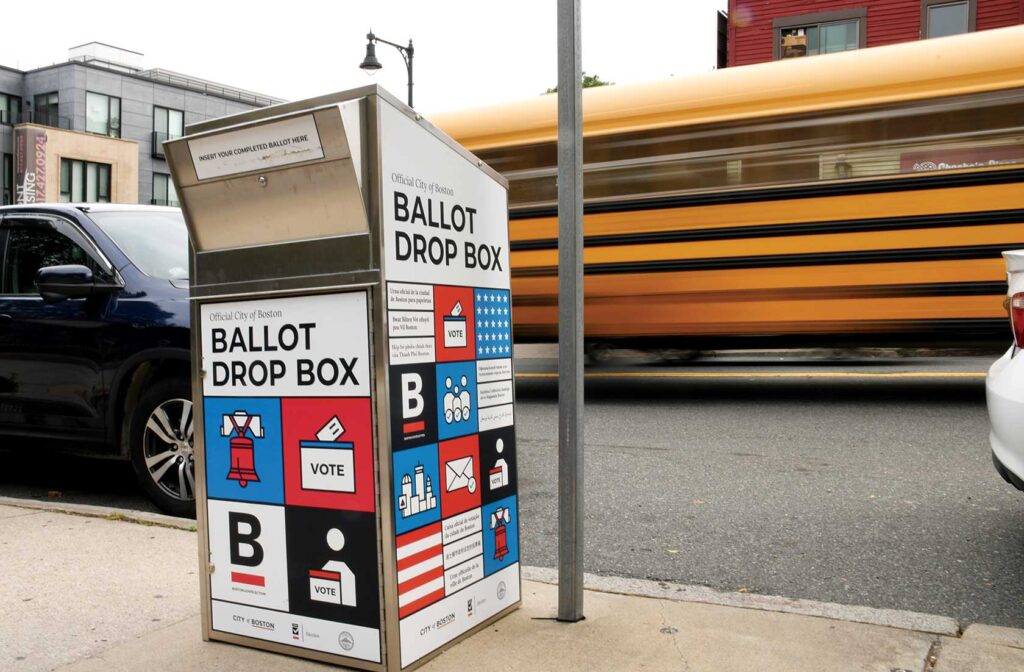
With the upcoming federal and state elections, stress around voting and the broader political landscape is growing. According to a report released in May by the American Psychiatric Association, nearly three-quarters of adults in the country are feeling anxious about November’s presidential election.
That anxiety has only been increasing in recent weeks and months, said Mark Longsjo, program director at McLean SouthEast, the psychiatric hospital’s satellite location.
“This is not dissimilar to other periods of high anxiety, but definitely centered on the upcoming presidential election in November, and a lot of the stress that we experience as consumers getting ready for the election and being stimulated by so many different ways that it influences us,” Longsjo said.
But there are steps individuals can take to address the fear, increased anxiety and depression that the election season — and a sense of lack of control — can bring, Longsjo said.
“Anxiety is a difficult symptom to manage, but it is manageable,” he said.
Addressing it might mean managing and balancing values, looking at what other things in life are important and paying more attention to those things that might have lost focus to political headlines and developments.
“When we look at the political season with more value and we’re putting emphasis on it, then we lose that balance, and we end up what we call getting ‘fused’ on one value,” he said. “As that becomes more of a focus, we lose sight of some of the other more important values: relationships, our own health, things like that.”
He said it doesn’t mean ignoring elections and political happenings but making time for other things in life, too.
“The good news from this is that a lot of us experience anxiety because we care about our country, we care about our democracy,” Longsjo said. “What we try to encourage our patients to do is to really think about other values that also remain very true during this time.”
That might mean limiting time spent following the news or looking at social media, and keeping an eye out for warning signs that an individual is becoming disconnected with their other values — like drifting away from habits like exercising regularly or seeing friends or family less frequently.
Working to regain a sense of control by getting involved in the lead-up to an election can also help with election anxiety, he said, as long as it’s in moderation.
“Because so much of it does feel like it’s out of our control, we would encourage people to get involved, to use our voice right and be involved with like-minded communities and like-minded groups,” he said. “That can be a very healthy outlet, but, again, keeping the balance of that, and making sure that it’s not something that we get too fixated on.”
Cheryl Clyburn Crawford, executive director of MassVOTE, a non-partisan group focused on increasing political participation, said she thinks getting involved is “the best thing for people to do,” if they’re feeling anxious.
Especially prior to Vice President Kamala Harris’ entrance into the presidential race last month, she saw growing reluctance to get involved that she credited to anxiety around the race. She said that, in her experience, that trend has shifted in the past month.
“It was like pulling teeth,” she said. “People were disillusioned, unhappy, disgruntled — all the things of, ‘another election, here we go again.’”
She encouraged local involvement to address anxiety — a suggestion that is shared by experts in the field,, who suggest that local action lets an individual more directly see the impact of their work.
“With the misinformation, disinformation and malinformation that’s going on in all the news, in the polls, and you don’t know what to believe, the best thing to do is really be involved with a grassroots organization whose goal is to educate people about what’s on the ballot,” she said.
Similarly, she said people should also focus on state elections and the candidates on that ballot, both in November and in next month’s preliminary election, taking place Sept. 3.
“Everyone wants to talk about the federal election that’s happening, you know, top of the ticket,” she said. “That’s great, but we all know that local politics is everything.”
She also encouraged people to get educated about where, when and how to vote in elections.
“I think what people need to make sure of is their registration,” she said. “Know where you’re registered, be aware of the dates and the opportunities and the many ways that you can vote.”
Registration for the state preliminary election closes Aug. 24 and the deadline to vote by mail applications is Aug. 26.
For the Nov. 5 general election, voters must register by Oct. 26. Applications to vote by mail are due by Oct. 29.






